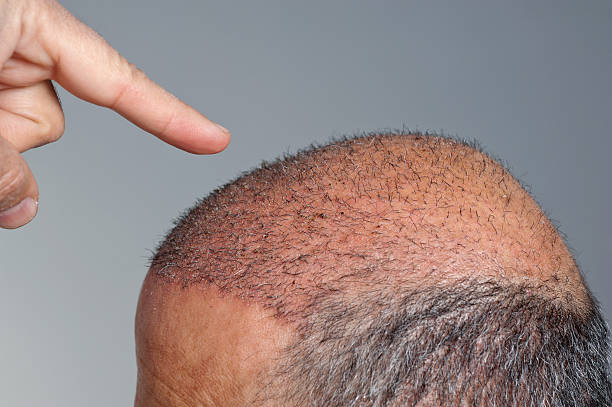Understanding Scalp Psoriasis: Key Signs You Shouldn’t Ignore
Scalp psoriasis is a chronic skin condition that affects the scalp, often causing discomfort and self-consciousness. It appears as raised, red, and scaly patches that can sometimes be mistaken for dandruff. While not contagious, this condition can significantly impact quality of life if left untreated. Understanding the early signs and symptoms of scalp psoriasis can help individuals seek timely treatment and manage flare-ups more effectively.

What Are the Most Common Signs and How Do They Differ From Dandruff?
The most recognizable signs of scalp psoriasis include thick, raised red patches covered with silvery or white scales that appear primarily along the hairline, behind the ears, and on the crown of the head. These plaques feel notably different from regular dandruff because they’re thicker, more adherent to the scalp, and often have a distinctive silvery appearance.
Unlike dandruff, which produces fine, oily flakes that fall easily from the hair, scalp psoriasis creates thicker, drier scales that stick firmly to the scalp and hair shafts. The affected areas typically appear more inflamed and raised compared to the flat, slightly irritated skin associated with dandruff. Additionally, psoriasis patches often have well-defined borders, making them clearly distinguishable from surrounding healthy skin.
How Does Itching and Flaking Affect Individuals With Scalp Psoriasis?
The intense itching associated with scalp psoriasis can be overwhelming and significantly impact daily functioning. This persistent itch often becomes worse during stress or when exposed to certain triggers, creating a cycle where scratching provides temporary relief but ultimately worsens the condition by causing further inflammation and potential bleeding.
The flaking characteristic of scalp psoriasis tends to be more severe and noticeable than typical dandruff. These thick scales can accumulate on clothing, particularly dark-colored garments, causing embarrassment and self-consciousness in social and professional settings. Many individuals report feeling compelled to scratch constantly, which can lead to temporary hair loss, scalp tenderness, and even secondary infections if the skin becomes broken.
Why Is Monitoring the Spread of Plaques Important in Managing Scalp Psoriasis?
Tracking the progression and spread of psoriatic plaques serves as a crucial indicator of disease activity and treatment effectiveness. When plaques begin expanding beyond their original boundaries or new patches appear in previously unaffected areas, this often signals that the current treatment approach may need adjustment or that external triggers are influencing the condition.
Early detection of spreading plaques allows healthcare providers to modify treatment plans before the condition becomes more difficult to manage. Additionally, monitoring helps identify patterns in flare-ups, which can provide valuable insights into personal triggers and seasonal variations that affect individual cases.
What Role Do Triggers Like Stress or Weather Changes Play in Flare-ups?
Environmental and emotional triggers play a significant role in scalp psoriasis flare-ups, with stress being one of the most commonly reported catalysts. During periods of high stress, the body’s immune system becomes overactive, potentially triggering the inflammatory response that characterizes psoriasis. Many individuals notice their symptoms worsen during particularly challenging life events or busy periods.
Weather changes, particularly cold, dry conditions, can also exacerbate scalp psoriasis symptoms. Winter months often bring increased flare-ups due to reduced humidity and less natural sunlight exposure. Conversely, some people find that moderate sun exposure and higher humidity levels during warmer months help improve their symptoms, though excessive sun exposure should be avoided.
Can Scalp Psoriasis Lead to Hair Loss and If So How?
While scalp psoriasis itself doesn’t directly cause permanent hair loss, the associated behaviors and inflammation can result in temporary hair thinning or loss. Frequent scratching, aggressive brushing to remove scales, or harsh treatment methods can damage hair follicles and lead to breakage or pulling out of hair strands.
The thick, adherent scales characteristic of scalp psoriasis can also make normal hair care routines challenging, potentially leading to hair breakage when attempting to remove buildup. However, with proper treatment and gentle hair care practices, hair typically regrows once the inflammatory process is controlled and irritating behaviors are minimized.
Treatment Options and Costs
Professional scalp psoriasis treatment varies significantly in approach and cost depending on severity and location. Dermatological consultations typically range from $200-400 for initial visits, with follow-up appointments costing $150-250.
| Treatment Type | Provider/Product | Typical Cost Range |
|---|---|---|
| Prescription Topical | Generic corticosteroids | $30-80/month |
| Medicated Shampoos | Coal tar/salicylic acid | $15-35/bottle |
| Biologic Injections | Specialty dermatology | $1,500-3,000/month |
| Light Therapy | Dermatology clinics | $75-150/session |
| Over-the-counter | Drugstore brands | $10-25/product |
Prices, rates, or cost estimates mentioned in this article are based on the latest available information but may change over time. Independent research is advised before making financial decisions.
Recognizing the signs of scalp psoriasis early can make a significant difference in treatment outcomes and quality of life. The distinctive thick, silvery scales, persistent itching, and raised patches that characterize this condition require different management approaches than simple dandruff or other scalp conditions. By understanding these key warning signs and working with healthcare professionals to develop appropriate treatment strategies, individuals with scalp psoriasis can effectively manage their symptoms and maintain healthy, comfortable scalp conditions.
This article is for informational purposes only and should not be considered medical advice. Please consult a qualified healthcare professional for personalized guidance and treatment.




